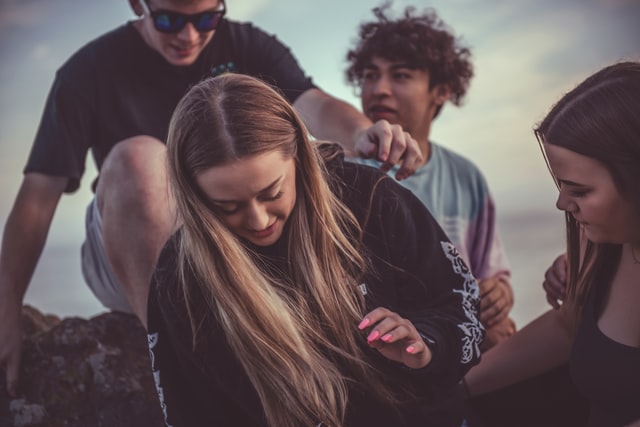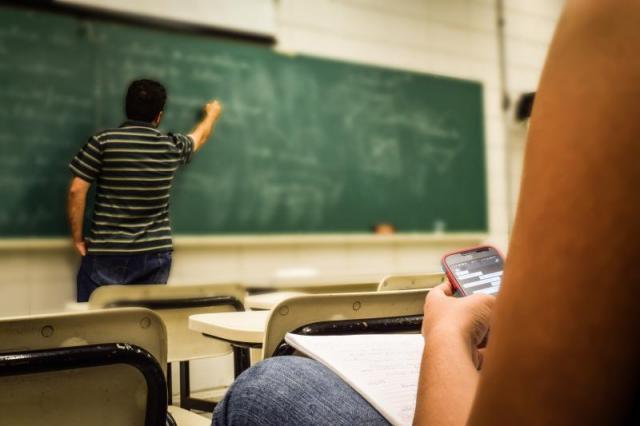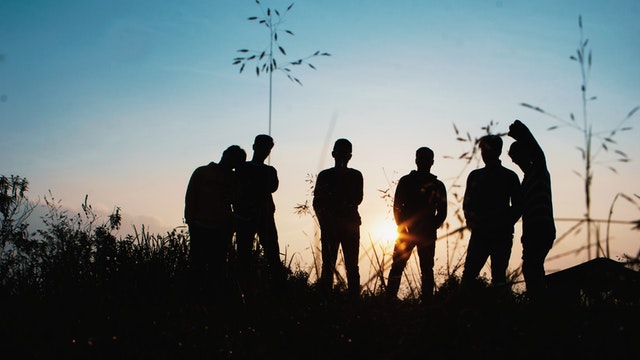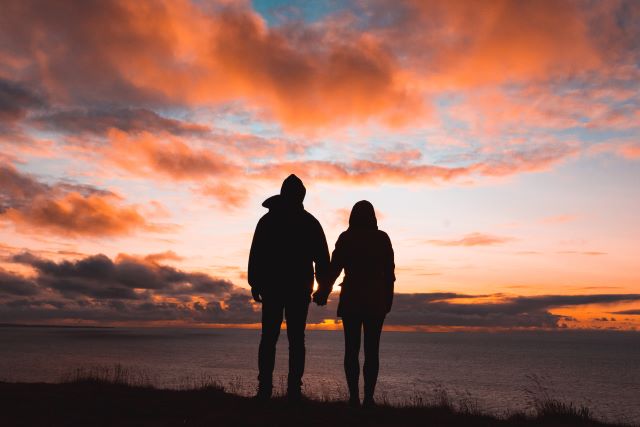Relationship and sexuality education: media, research, resources and new campaign
Fri 31 Mar 2023
In this news story we pull together media articles, research and resources related to relationship and sexuality education for young people.
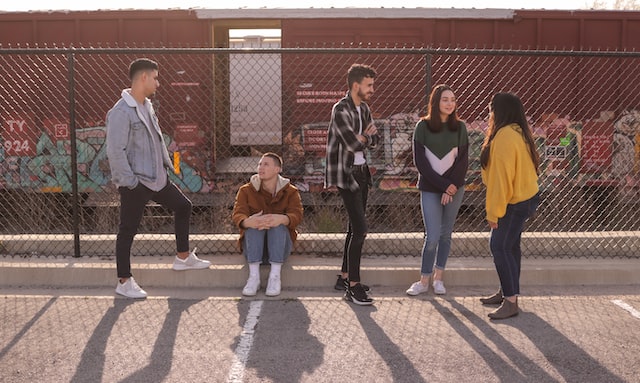
Media focus on pornography and young people
Media has increasingly drawn attention to pornography and the impacts on young people, as well as the need to provide education and have conversations with young people. In response to a recent media campaign, academic and community education experts highlighted that "...what was notably absent for us was the challenging (and much less sexy!) conversation about the nature of mainstream pornography, including how it portrays sex and how that might be affecting youth and wider sexual cultures."
Their article in The Spinoff, 'An academic response to Porn Week', raised issues around how consent, aggression, 'rough sex' and sexual violence are depicted in pornography. The authors noted that:
"...young people themselves say they are often uncomfortable about what they see in porn, that they are not having the conversations they want and need, and that porn is shaping and shifting sexual norms among their peers. A key area of concern in relation to these shifting sexual norms is so-called “rough sex”."
The authors of the article were Dr Samantha Keene, Nikki Denholm, Professor Nicola Gavey, Dr Kris Taylor, Dr Jade Le Grice and Associate Professor Melanie Beres.
Porn Week was a campaign run by Netsafe from 7 - 13 November 2022. The campaign included a series of articles about pornography on The Spinoff.
Recent research on relationship and sexuality education
Two recent research reports examined the experiences of teachers and school leaders/principals in Aotearoa New Zealand in relation to the Relationship and Sexuality Education (RSE) guidelines that were refreshed in 2020.
New Zealand secondary school teachers’ perspectives on teaching Relationships and Sexuality Education (2022) summarised findings of a survey of 190 secondary school teachers in New Zealand about their experiences teaching RSE. While the research showed some positive aspects, it identified many gaps. Findings include that many students are not receiving the 12-15 hours of RSE recommended by the Ministry of Education and the Education Review Office. Teachers identified many barriers to teaching RSE including lack of time, access to professional development, subject status, an inconsistent whole-of-school approach and less confidence integrating mātauranga Māori and other cultural knowledge perspectives. Family Planning chief executive Jackie Edmond said:
"This survey supports the calls from young people for better relationships and sexuality education. It’s unsettling to find through this survey that not much appears to have changed since the last report on RSE, and teachers are telling us they need support.
We actually have an excellent set of guidelines on how schools should teach this area of the curriculum. But there are too many barriers and challenges to ensure high quality and meaningful RSE that meets the evolving learning needs of our rangatahi."
The research and report were completed by the University of Canterbury, Family Planning New Zealand and the New Zealand Health Education Association.
Researchers at the University of Canterbury also published the report, Exploring the landscape of relationships and sexuality education in primary schools in New Zealand (2023). The report summarises findings from a survey and focus groups with teachers and school leaders/principals at primary schools in relation to the RSE guidelines. The findings provide an overview of awareness about the guidelines, confidence in meeting the community consultation requirements, whole school approaches, work with external providers, teachers' perceptions and confidence, and barriers and enablers to teaching the guidelines. The report concludes with questions that schools and teachers could consider to explore recommendations leading to effective RSE practice.
Update: Rangatahi Perspectives on Hauora and Wellbeing: A Qualitative Report from Aotearoa (2023) shares findings from interviews with 56 culturally diverse rangatahi (young people) aged 16–20. The report highlighted the impact of racism and rigid gender stereotypes on rangatahi, as well as challenges rangatahi experienced in talking about sexuality, relationships and sex. Also see the related articles ‘You can’t really define it can you?’ Rangatahi perspectives on hauora and wellbeing (2021) and ‘Hāpai te hauora’— ‘it’s like breathing your ancestors into life’. Navigating journeys of rangatahi wellbeing (2022).
For more research, search our library under the keyword topics pornography and sexuality education.
Update: Family Planning developed 2 resources with information on what relationships and sexuality education is and answers to common questions about relationship and sexuality education in August 2023.
Resources to support talking with young people
The Light Project developed a new online resource kit for health professionals on Youth and Porn Navigating the Issues. The kit includes 12 resources across three areas:
- understanding young people and porn
- how to engage in shame-free porn conversations and equip young people with porn literacy skills
- help with assessing and responding to youth and porn concerns in the workplace.
The Light Project is run by a team of sexual and public health professionals who work alongside New Zealand youth health services, schools, sexual violence prevention services and youth organisations to provide information and resources addressing issues related to porn and young people. Resources are available for youth, whānau and professionals. Also see their website for youth, In The Know.
The Shifting the Line research project developed a new model for working boys and young men towards the primary prevention of gendered violence. The Shifting the Line research "...provides a model for making sense of the relationship between rigid and potentially harmful gender norms for men and a theory of change for how to help boys and young men break free of the influence of these norms." For more information see their report Shifting the line: boys talk on gender, sexism and online ethics (2021), resources from the project, and interviews with researcher Kris Taylor on 95bfm and researcher Nicola Gavey on RNZ as well as the article Boys (still) don't cry: How thinking outside the 'man box' could help prevent violence.
The Keep It Real Online campaign a New Zealand Government public awareness campaign to support children and young people to be safe online. It is led by the Department of Internal Affairs. The www.keepitrealonline.govt.nz website has resources and information for parents, educators and youth. It covers a range of online issues including online bullying, relationships and sexuality education including porn, grooming and coercive online sexual relationships, sharing intimate images and social-emotional safety skills.
Family Planning New Zealand provides a range of advice for parents and carers as well as information on relationships, relationships and sexuality education and keeping safe.
Resources designed to support the Ministry of Education's Relationships and Sexuality Education guidelines include a module to support teachers to talk about pornography. The module, Ka huri i te kōrero | Changing the conversations, was developed by the Ministry of Education and the Classification Office.
The Classification Office also developed a guide for parents and carers to talk with young people about pornography.
Communities and educators are increasingly developing resources for young people to explore questions related to their relationships and sexuality including podcasts, videos and websites.
- Tapu Vā is an online platform that provides a safe space for people in the Pasifika community to share their experiences with sexual health and wellbeing. People can share their stories and read stories from other people. The website also features videos of health professionals, students and Pasifika champions sharing about their personal experiences with talking about sex with their parents, contraception and more. Tapu Vā is a collaboration between Hard Luck Design and Te Whatu Ora - Health New Zealand.
- Ai – Let’s Talk About Sex, is a digital series for rangatahi over 18 years about sexual health. It features 12 videos where rangatahi explore a range of topics including consent, porn, relationships and more.
- Te Pūtahitanga o Te Waipounamu is refreshing their rangatahi sexual health campaign #sexkōrero. The campaign is for rangatahi, led by rangatahi, focused on giving accurate understanding and knowledge of what to look out for, be aware of, or where to go when sexual health and wellbeing is concerned.
- Shama has been supporting ethnic community groups across Aotearoa New Zealand to work on sexual violence prevention. Several of these projects include videos about consent and healthy relations designed by and for ethnic community groups.
New 'Love better' campaign
The government has launched a new campaign called Love Better which "...will initially support young people through their experience of break-ups, developing positive and life-long attitudes to dealing with hurt." In the campaign overview the Ministry of Social Development (MSD) notes that the campaign "...will complement curriculum-based programmes and other cohort-specific campaigns being led by the Health Promotion Agency (HPA), E Tū Whānau and Pasefika Proud." MSD also notes that this first phase will focus on supporting young people through break ups. It also notes The campaign is supported by Youthline. People who need support can text lovebetter to 234, email lovebetter@youthline.co.nz, or call 0800 376 633. See further information about the campaign in the related media below.
Calls for consent reform
A petition calling for law reform related to consent, launched by Layba Zubair, was delivered to Parliament in September 2022 with more than 12,000 signatures. To learn more listen to a 95bfm interview with Layba and see the related media below. Students have also called for mandatory consent education. However, Associate Professor Melanie Beres has previously written about the need to move beyond consent education, commenting that "If we want to reduce Aotearoa’s sexual violence rates, we need to shift our focus from solely teaching young people about consent and instead work to dismantle harmful gender norms that have trapped our youth for generations."
Related news: UN experts' call to action on sexuality education
Several UN experts came together to publish A Compendium on Comprehensive Sexuality Education (2023). It provides an overview of international obligations and standards, and recommendations from UN experts. It concludes with 7 calls to actions for states to provide comprehensive sexuality education:
"1. Respect and protect the key principles of non-discrimination, equality, and privacy, as well as bodily integrity, autonomy, dignity, and well-being of individuals, especially in relation to sexual and reproductive health rights.
2. Respect, protect and implement the human right to quality education and lifelong learning, including comprehensive sexuality education. This includes adopting and strengthening legislation as well as designing, implementing public policies and curricula, aimed at guaranteeing this right without any form of discrimination.
3. Put in place effective implementation mechanisms, such as: ensuring that comprehensive sexuality education is a mandatory subject in school curricula; adequate teacher training and support; developing evidence-based online comprehensive sexuality education; engaging communities and parents; and allocating sufficient resources.
4. Ensure that comprehensive sexuality education curricula are non-discriminatory, non-biased, and based on scientific evidence and human rights. They should be inclusive and accessible to all individuals, especially to the most marginalized, including adolescent girls, LGBTIQ+ youth, out-of-school adolescents and young people living with disabilities. States should ensure that comprehensive sexuality education starts early in childhood, in a manner consistent with the evolving capacities of the child, and that it progresses through adolescence and adulthood.
5. Guarantee that comprehensive sexuality education curricula include a breadth of topics beyond a focus on risks and disease, with special attention given to respect, consent, autonomy, relationships, sexuality, gender equality and sexual and gender diversity, pleasure, responsible parenthood, dismantling patriarchal gender stereotypes and harmful social norms, and preventing early pregnancy, sexually transmitted infections, sexual and gender-based violence and discrimination.
6. Eliminate the stigma often ascribed to sexual and reproductive health issues, which are typically treated as taboo topics and enforced through socio-cultural norms, and the growing problem of misinformation.
7. Ensure that all adolescents and young people have access to free, confidential, and non-discriminatory sexual and reproductive health services, information and education responsive to their needs, available both online and in person, and in multiple forms and languages, which include family planning, contraception, including emergency contraception, prevention, care and treatment of sexually transmitted infections, counselling, pre-conception care, gender-affirming care, maternal health services, access to safe abortion and postabortion services and menstrual hygiene. Gaining knowledge about their reproductive system helps girls and women become more self-confident and adopt improved health measures. States should also remove barriers such as requirements for third-party consent or authorization and regulate conscientious objection to ensure that all people needing an abortion can have access to it."
The UN experts included the Special Rapporteur on the right of everyone to the enjoyment of the highest attainable standard of physical and mental health, the Independent Expert on protection against violence and discrimination based on sexual orientation and gender identity, the Special Rapporteur on the right to education and the Working Group on discrimination against women and girls.
Related media
Campaigners call for tighter restrictions on illegal sexual content online, RNZ, 25.05.2023
Why we need to talk about porn when we talk about Andrew Tate, The Conversation, 29.04.2023
How to talk to children and teens about sex and pornography, RNZ, 23.03.2023
Breakups hurt, but 68% of us have actually been harmed by them, Re:News, 23.03.2023
Love Better: Relationship break-up support campaign launches, RNZ, 22.03.2023
Majority of young people experience coercive control in relationships: survey, Stuff, 22.03.2023
The toxic world of the manosphere, RNZ, 07.03.2023
Jessie Gurunathan: into the toxic rabbit hole of the manosphere, NZ Herald, 29.01.2023
We’re about to have a conversation about porn..., Today FM, 28.01.2023
Sex Outside the City challenges taboo to improve takatāpui health, NZ Herald, 07.12.2022
Little priority given to sex education in schools, teachers say, RNZ, 01.12.2022
Teachers want more time for sex education, RNZ, 01.12.2022
Sex education app a 'one-stop shop' for Canterbury students, Otago Daily Times, 14.11.2022 (find the Beyond the Birds and Bees app on Google Play)
Pacific teens turning to porn to learn about sex, Tagata Pasifika, 21.09.2022
12,000 NZers call on Govt to reform consent law, Re:News, 27.09.2022
Pasifika leaders on a mission to normalise talanoa about sexual health, Tagata Pasifika, 19.08.2022
It's 2022 and NZ law still doesn't define what consent is, Re:News, 02.08.2022
Play written by Massey PhD graduate addresses urgent community issues, Massey News, 08.07.2022
Image: Eliott Reyna on Unsplash



